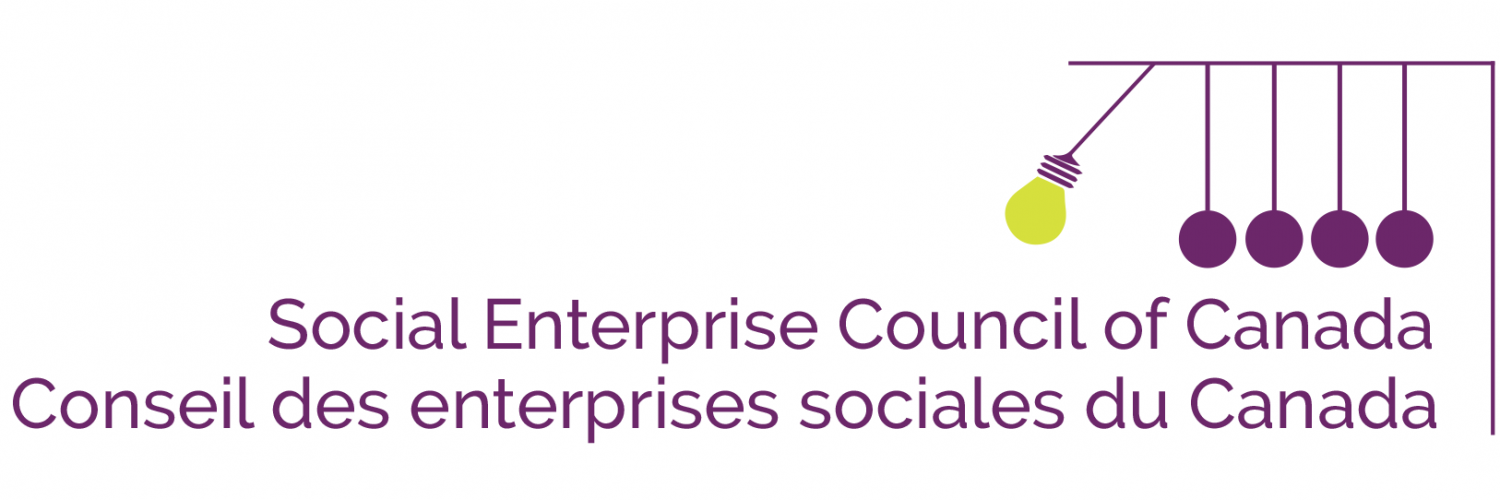Dear Ministers,
Thank you for all of the efforts and investment in supporting our communities through this crisis and chaos of COVID 19.
We all share a sad heart when we reflect on the devastation of lives, jobs, and communities caused by COVID, but we also have the resolve to look to the future with a thankful and hopeful heart as we begin the process to rebuild a future with on a more resilient economic base and greater social cohesion.
The Social Enterprise Council of Canada congratulates the government’s nimble, and effective role over the last 4 months. The leadership in Cabinet and the amazing effort and effective response by the Public Service allowed Canada to come through the worst and now be in a position to prepare for a ‘new normal’.
Because social enterprises unique blend business and social value outcomes we encourage you to engage with and support social enterprise as a key resource in the next phases of the COVID recovery process.
For years, social enterprises have generated local social, economic and targeted employment impacts. In 2018, in Canada’s poorest urban community, Vancouver’s Downtown Eastside, social enterprises created over 2,000 jobs for persons facing barriers to employment. In Winnipeg (BUILD), Toronto (Building Up), and St. John’s (Choices for Youth) social enterprises support youth at risk to prepare for and enter the construction industry. In Ottawa Causeway’s several social enterprises support People with Disabilities to gain successful employment to enhance their income and social inclusion.
In response to the COVID crisis social enterprises did some amazing pivots to respond to local needs. Examples include, CleanStart, a social enterprise in Vancouver got international recognition for their efforts: https://www.pioneerspost.com/business-school/20200424/its-risky-we-know-what-were- doing-dylan-goggs-cleanstart. Other social enterprises, like Ecoequitable in Ottawa and The Cutting Edge in Winnipeg re-directed their sewing and women’s employment training efforts to make masks.
As we now move to the next phase of less isolation, and then work toward recovery, we strongly urge the Federal government to engage with and support the social enterprise sector as part of rebuilding the socio-economic fabric in our communities through three specific recommendations:
- Expand social procurement and community benefit agreements to achieve best value for taxpayers and contribute to community socio-economic rebuilding: o Include a social value weighting on all purchases of all goods and services
o Expand the scope of the existing Infrastructure Canada Community Employment Benefit programs to all construction and infrastructure projects - Open up all government SME programs, services and investments to social enterprise business models
o Include non-profit social enterprises in all SME services currently available through Regional Development Agencies, Community Futures, small business services, etc.
o Provide loans to non-profit social enterprises through existing channels, such as the Business Development Bank, BDC.
• Implement all of the Social Innovation / Social Finance recommendations
o Accelerate the entire suite of SI/SF recommendations to provide a stronger
ecosystem for social enterprise activities and social purpose organizations
The government has allocated unprecedented funds and broadened SME program capacity in response to COVID, the specific inclusion and attention to social enterprise in these efforts will enhance their scale and impact to our most marginalized community members.
We are writing this letter to multiple Ministers, as social enterprise crosses the boundaries of the usual government division of focus and resource allocation. Social enterprises create community capital not merely economic capital:
- Social capital by building relationships and bridges across diverse community members
- Human capital through training and jobs for persons facing barriers to employment
- Cultural capital through businesses furthering Immigrants and Indigenous community development
- Economic capital that addresses poverty through income generation for low income community members
- Physical Capital through social purpose real estate and social housing To enhance the role of social enterprise in the recovery and building of the new norm, it is not an issue of spending additional money, it is about leveraging social value from existing procurement and infrastructure, opening existing SME services and investment to social enterprises, and implementing the SI/SF goals. We look forward to working with you on the re-development phases and the recovery of our communities’ well-being.
- Regards, David LePage
Chair, Social Enterprise Council of Canada Managing Partner, Buy Social Canada david@buysocialcanada.com 1.778.772.3472
- Members of the SECC Board of Directors: David LePage (British Columbia) Anne Jamieson (Ontario)
Andy Horsnell (Nova Scotia) Chas Young (Alberta) Marty Donkervoort (Manitoba)
Norman Greenberg (Nova Scotia)
Penelope Rowe (Newfoundland / Labrador) Sarah Leeson-Klym (Manitoba)
Mandy Burke (New Brunswick)
